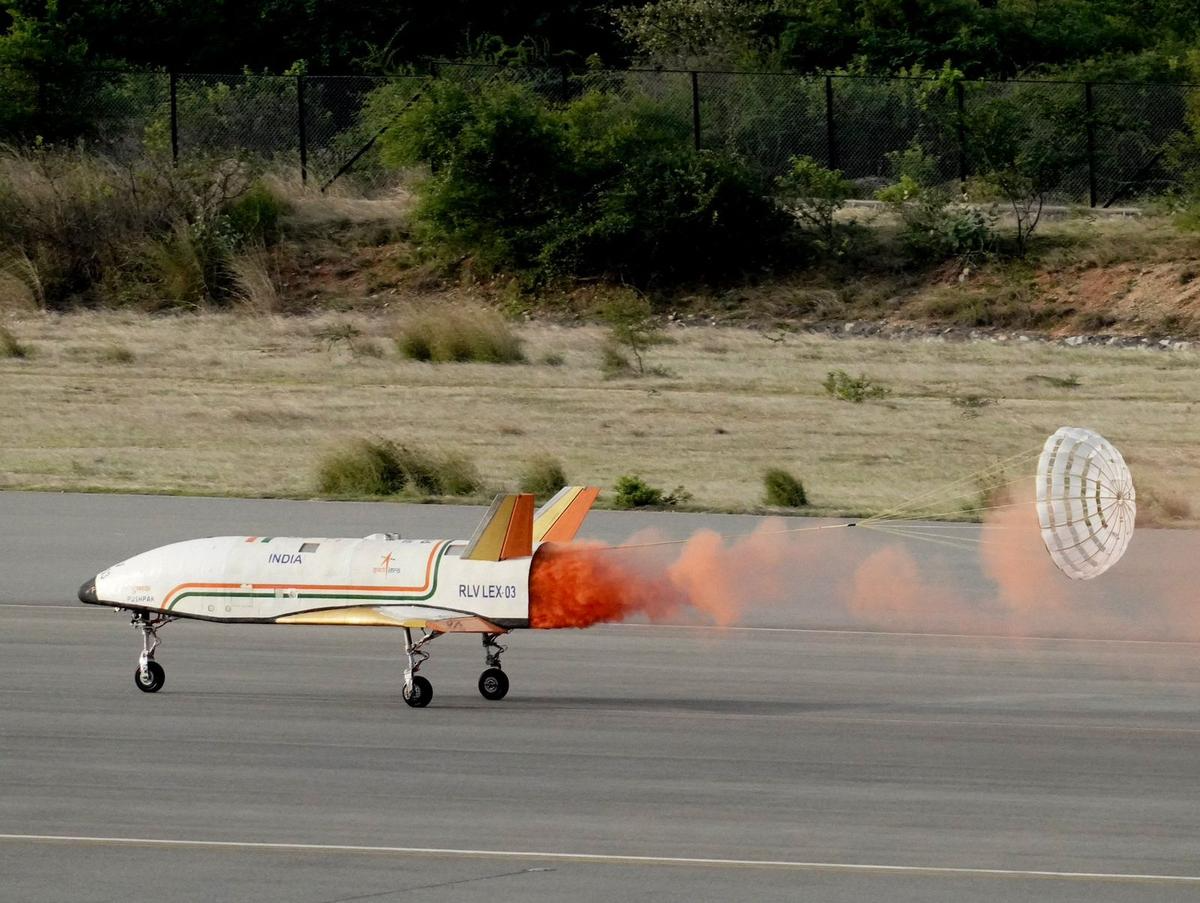
India’s ISRO Successfully Tests Reusable Rocket Ushering in a New Era of Sustainable Spaceflight
In a historic milestone for Indian aerospace advancement, the Indian Space Research Organisation (ISRO) has successfully conducted a critical test of its Reusable Launch Vehicle (RLV) a technology set to revolutionize the cost and sustainability of space missions. This accomplishment, achieved after years of iterative research and testing, marks India’s bold step into the league of nations pursuing reusable rocket systems, a field dominated so far by a few global players such as the United States and China. The successful test doesn’t just symbolize a technological victory; it signals a fundamental shift in how India envisions its future role in space exploration and satellite commerce.
The latest test took place at the Aeronautical Test Range in Chitradurga, Karnataka, and involved the RLV LEX (Landing Experiment). Released mid air from a helicopter at high altitude, the winged demonstrator navigated its way autonomously to a precision runway landing. This operation validated a critical element of space reusability controlled atmospheric re entry and horizontal landing, akin to an aircraft. ISRO’s engineers confirmed that the RLV navigated complex aerodynamic conditions, adjusted its orientation during glide, and successfully managed its speed and trajectory before making a soft, autonomous touchdown. The ability to recover a component in reusable condition marks the cornerstone of a low cost, high frequency spaceflight future.
This test follows several earlier developmental milestones that laid the groundwork for this achievement. Initial efforts, including the RLV TD HEX 01 in 2016, focused on suborbital flights and aerodynamics under hypersonic conditions. Over time, ISRO advanced the design into a technology demonstrator capable of being air dropped, autonomously gliding, and landing like a commercial airliner. Unlike traditional rockets, which fall into the ocean after deployment, a reusable system like the RLV can return to a designated base, undergo minimal refurbishment, and be re flown within days or weeks. This greatly reduces the financial and logistical load per mission a transformative advantage for satellite launches and interplanetary exploration.
Beyond the technical feat, this achievement has significant implications for ISRO's broader goals. The agency has been laying the foundation for Next Generation Launch Vehicles (NGLV) that will incorporate reusability into core stage recovery, vertical landing capability, and possibly dual mode engines. With global competition heating up in low Earth orbit (LEO) launches, particularly for small satellites and commercial payloads, ISRO is positioning itself as a reliable, budget friendly alternative. The successful RLV test is seen as a strategic leap in the direction of reducing launch costs by 60 80%, thereby enhancing ISRO’s competitiveness in the global launch market.
India’s ambition doesn’t stop at cost efficiency. The integration of reusability is critical for larger missions, including the upcoming Gaganyaan crewed space program, deep space probes to Venus and Mars, and possible lunar surface ventures under the Chandrayaan program. With more frequent launches required for building a sustained space infrastructure, reusability ensures that India does not exhaust its resources or delay missions due to cost constraints. Furthermore, reusable rockets could enable rapid deployment of constellations for navigation, Earth observation, and broadband services across rural and remote regions amplifying the benefits for its civilian and defense sectors alike.
The success of this reusable system also demonstrates India’s growing confidence in complex software, guidance systems, and high precision autonomy. The flight software developed for RLV must interpret thousands of variables in real time from atmospheric turbulence to velocity vectors and orientation data without ground intervention. That this was achieved domestically reinforces India’s capacity in building not just robust hardware, but also sophisticated onboard intelligence systems. Additionally, the telemetry, health monitoring, and recovery mechanisms used during the test may now be adopted across ISRO’s next generation missions, reinforcing the organization's overall engineering maturity.
Looking ahead, ISRO plans to expand the program to include powered descent and vertical takeoff/landing trials techniques famously used by companies like SpaceX for Falcon 9 recoveries. The long term vision involves creating a two stage to orbit reusable system, where both booster and orbiter can return for reuse. By doing so, India hopes to emulate and eventually innovate beyond current international benchmarks. With the government’s recent emphasis on public private partnerships in the space sector and an increasing number of space startups emerging, the reusable rocket test provides a technological foundation that the private ecosystem can build upon.
In essence, the successful RLV test represents far more than a solitary event. It is a symbol of ISRO’s transition from a cost effective satellite launcher to a full spectrum space power, capable of competing at the highest levels of innovation. With this milestone, India has declared that its space program is not just catching up it’s designing a future where affordability meets reusability, and where missions are not constrained by throwaway hardware. As ISRO refines this technology, it could unlock an era of green, scalable, and accessible spaceflight that serves not only India, but the entire global scientific and commercial community.
Related Post
Popular News
Subscribe To Our Newsletter
No spam, notifications only about new products, updates.















